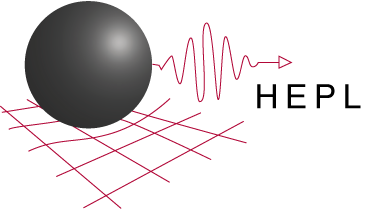News & Events
HEPL-KIPAC Seminar
Wednesday June 15, 2011
Thomas Brunner
Postdoctoral Fellow
TRIUMF
Canada's National Laboratory for Particle & Nuclear Physics
High precision nuclear physics measurements with trapped ions at TITAN
Abstract: At TRIUMF's Ion Trap setup for Atomic and Nuclear science (TITAN) a variety of low energy nuclear physics experiments can be performed. While the main focus of TITAN lies on determining the masses of short lived radioactive isotopes, other experiments like laser spectroscopy and in-trap decay spectroscopy are also performed. In this talk I will present the TITAN setup and recent measurements as well as the development of the in-trap decay spectroscopy technique. The latter method has been developed to measure part of the 2nbb decay nuclear matrix element.
Bio: Thomas Brunner did his undergraduate studies at the Technical University Munich in Germany. He stayed in Germany for his Diploma thesis, which is the equivalent of a Master thesis in America. There, he obtained his Diploma degree in 2006 on the formation of positronium on cold surfaces at the high intensity neutron source GRM-II in Munich. Thomas received his doctorate degree from the Technical University Munich in January 2011. For his PhD research, he was permanently stationed at TRIUMF in Vancouver, Canada, where he was working under the supervision of Prof. Jens Dilling (TRIUMF) and Prof. Reiner Krucken (Technical University Munich). At TRIUMF, he developed a new technique to measure electron capture branching ratios of ions stored in a Penning trap. This technique will be used to determine part of the two neutrino matrix element in double beta decays. During his work at TRIUMF he was also involved in high precision Penning trap mass measurements and laser spectroscopy experiments.
Time: 4:00pm – 5:30pm
Location: Physics and Astrophysics Conference Room 102/103
Light refreshments available 4:00pm; Presentation begiins 4:15pm
Open to All


